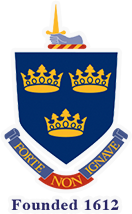Computer Technology
Curriculum Overview
We are committed to providing a comprehensive IT and Computing curriculum designed to equip our learners for the demands and opportunities of contemporary Britain and beyond. Our programme is meticulously crafted to ensure that our learners not only acquire high-quality IT skills, crucial for effective engagement in today's digital workplace, but also gain deep insights into Computer Science. This empowers them to actively participate in the design, development, and innovation of new technologies, shaping the world they inhabit.
Central to our curriculum is a profound understanding of how technology operates, evolves, and can be harnessed for diverse applications. We achieve this by integrating and expanding concepts from a variety of disciplines, including Mathematics, Science, and Personal, Health, and Social Education (PHSE). This interdisciplinary approach is further enriched by embedding robust literacy and numeracy skills within our software development, problem-solving, and evaluative practices.
Our curriculum offers a broad spectrum of skills and experiences at Key Stage 3 (KS3), laying a solid foundation that is further refined and specialised as learners progress to Key Stage 4 (KS4). At KS4, learners have the opportunity to delve into Cambridge IT, acquiring a diverse set of IT skills relevant to the modern world, such as Graphic Design, Media Production, and Web Development. Additionally, they can opt for GCSE Computer Science, where they develop essential problem-solving skills applicable across various disciplines, along with coding and software development expertise that are increasingly recognised as vital in today's rapidly evolving technological landscape.
Through our Computer Technology programme, we aim to provide our learners with a plethora of opportunities to:
Demonstrate knowledge, understanding and application of the key concepts and principles of Computer Science:
- Understand the fundamental principles and concepts of Computer Science
- Be able to apply key algorithms and data representation and mathematical skills through practical and theoretical work
- Understand the key components that make up digital systems and how they communicate
- Understand the impacts of digital technology to the individual, wider society, the ethical changes and cultural impacts as well as the positive and negative impacts digital technology has had on the environment
- To equip learners with a range of creative media skills and provide opportunities to develop, in context, desirable, transferable skills in areas such as research, planning and evaluation
Analyse problems in computational terms:
- To make reasoned judgements
- To design, program, evaluate and refine solutions.
- Plan and develop software using the software design lifecycle
- Use a range of software design techniques such as flowcharts, pseudocode and visualisation diagrams
- Develop key problem-solving skills of Abstraction, Decomposition and Algorithmic thinking
- Develop key skills and practical experience in script-based programming languages and be able to design, write and debug programs to solve non-simplistic problems
- To be able to think creatively, innovatively, analytically, logically and critically when solving problems
- Be able to make informed decisions on appropriate and efficient coding techniques such as sequence, selection, iteration and the use of functions
To be able to design, program, evaluate and refine solutions to problems
Learning Journey
Year 7 Curriculum Intent
- Ensure learners are safe and responsible users of technology, emphasizing digital literacy and online safety
- Introduce computational thinking concepts such as basic algorithms and logical reasoning
- Integrate file management and numeracy skills within computing tasks
- Begin foundational block programming skills with Scratch, introducing physical computing concepts
Year 8 Curriculum Intent
- Develop an appreciation of computing pioneers and their influence on modern technology
- Enhance awareness of Computing’s societal impact, covering both positive and negative aspects
- Advance computational thinking skills through problem-solving activities and understanding of key algorithms
- Introduce script-based programming languages for problem-solving such as Microsoft Small Basic
- Begin basic HTML web development and graphic design skills
- Introduce physical computing with Microbits, expanding on block programming skills
Year 9 Curriculum Intent
- Ensure learners are confident in using IT and Computing resources, with a clear understanding of Computer Science vs IT
- Extend computing numeracy topics and problem-solving skills
- Deepen understanding of text-based programming languages, focusing on Python
- Enhance computational thinking skills including abstraction, decomposition, and logical thinking
- Explore the history of computing and its key figures
- Develop graphic design skills using advanced tools like Photoshop
GCSE Computer Science - The KS4 Computer Science curriculum is designed to cover the following areas:
- Computer Systems
- Computational thinking, algorithms and programming
KS4 Computer Science Curriculum Intent
- Understand and apply advanced concepts and principles of Computer Science.
- Analyse complex problems computationally through practical problem-solving experiences
- Foster innovative, analytical, and logical thinking
- Deepen understanding of digital systems and their communication
- Explore the broader impacts of digital technology on society and the environment
- Apply mathematical skills relevant to advanced Computer Science topics
Cambridge Technical Level 2 IT - The KS4 Cambridge Technical Level 2 IT curriculum is designed to cover the following areas:
- IT in the digital world
- Data manipulation using spreadsheets
- Using Augmented Reality to present information
KS4 Curriculum Intent
- Understand and apply advanced concepts and principles of Computer Science
- Analyse complex problems computationally through practical problem-solving experiences
- Foster innovative, analytical, and logical thinking
- Deepen understanding of digital systems and their communication
- Explore the broader impacts of digital technology on society and the environment
- Apply mathematical skills relevant to advanced Computer Science topics
The Computer Technology long-term plan is available here.
The Computer Technology Learning Journey is available here.


